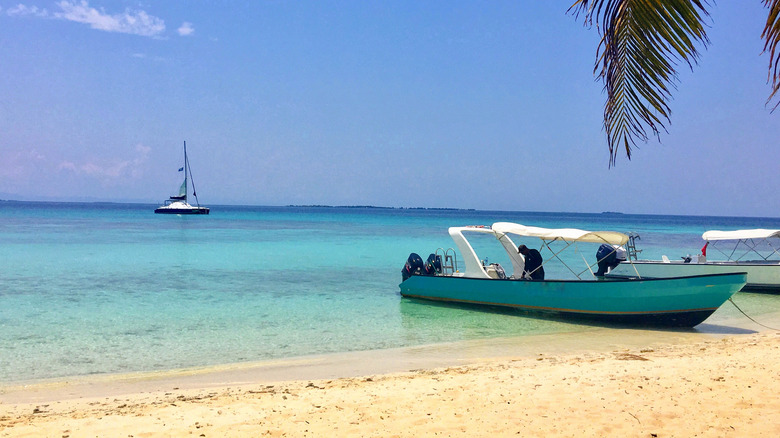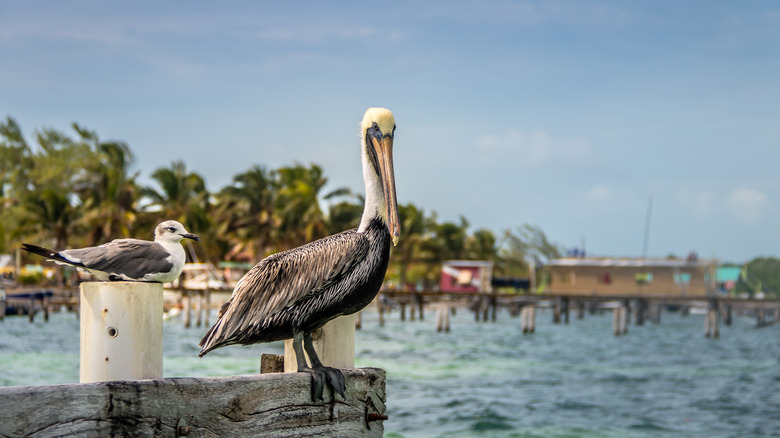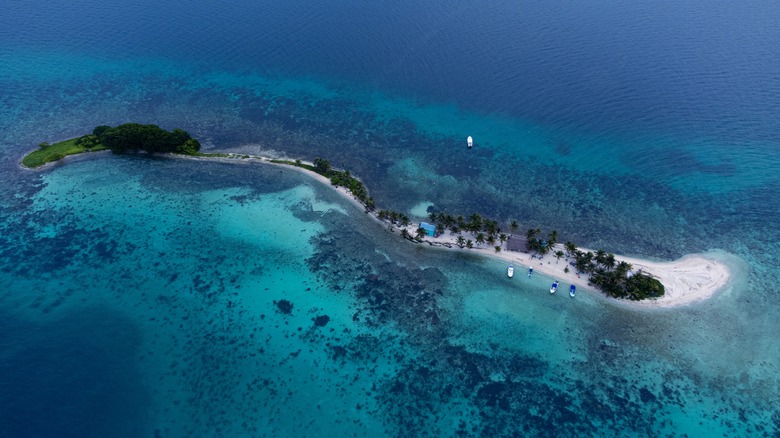If you’ve ever wanted to imagine what it’s like to own a private island, then the gorgeous Laughing Bird Caye in the Caribbean Sea is the place to do it. It is the perfect destination for marine lovers, as it is perched on a ridge reef known as a “faro.” Since this is such a unique habitat, it attracts a wealth of wildlife and it was designated as the Laughing Bird Caye National Park in 1991. The island’s name came from the laughing gulls that used to nest and raise their chicks here.
This island and its habitat is so important that its listed as a UNESCO World Heritage Site as part of the Belize Barrier Reef Reserve System. This Caye is located in budget-friendly Belize, which is ideal for those looking for a Central American Caribbean adventure. While the island’s diminutive size means that there isn’t anywhere to stay overnight, it is a wonderful place to spend the day spotting tropical fish.
What to know before you go

Laughing Bird Caye is 11 miles away from Placencia, a peninsula resort town off the coast of Belize. From there, it takes 30 minutes to one hour to get to the island by boat, depending on the conditions. You will need to book an organized tour, which is easy to do in Placencia. These trips usually last around half a day, setting off in the morning for a few hours of snorkeling, followed by lunch and then more time to simply relax on the island.
As Belize is working hard to preserve its biodiversity, they have strict responsible visitation guidelines that must be adhered to by tourists. These include keeping your distance from coral and other wildlife, not littering, using reef-safe sunscreen, avoiding single-use plastics, and not taking any corals or shells home with you. Part of the island is off-limits due to birds and endangered hawksbill turtle nests, so do not step into these areas. Your efforts will be rewarded with the knowledge that you’re not harming the incredible wildlife that you will see here.
Things to do at Laughing Bird Caye

The best thing to do at Laughing Bird Caye is enjoy its crystal clear Caribbean waters, where you can hopefully spot the famous sea snail known as the conch. Snorkeling and diving are the top activities, as you can get up close to the island’s marine diversity. Over 230 species of fish, including the goliath grouper, Nassau grouper, parrotfish, and surgeonfish, can all be found here. Look out for bull sharks, Caribbean reef sharks, silky sharks, lemon sharks, the endangered scalloped hammerhead, bonnethead sharks, nurse sharks, tiger sharks, black tip reef sharks, Caribbean sharp-nose sharks, whale sharks, and bottlenose dolphins — we weren’t joking when we said the wildlife is plentiful!
Birdwatchers will also enjoy seeing the brown booby, brown pelican, magnificent frigatebird, osprey, and, of course, laughing gulls that feed around the island. The only other thing to do is relax on the island, as there are no facilities here. Many of the tours include lunch on the island, which is good as all that swimming may give you an appetite. If you’re staying in Placencia, you can visit on multiple days to see how much epic marine life you can find.

